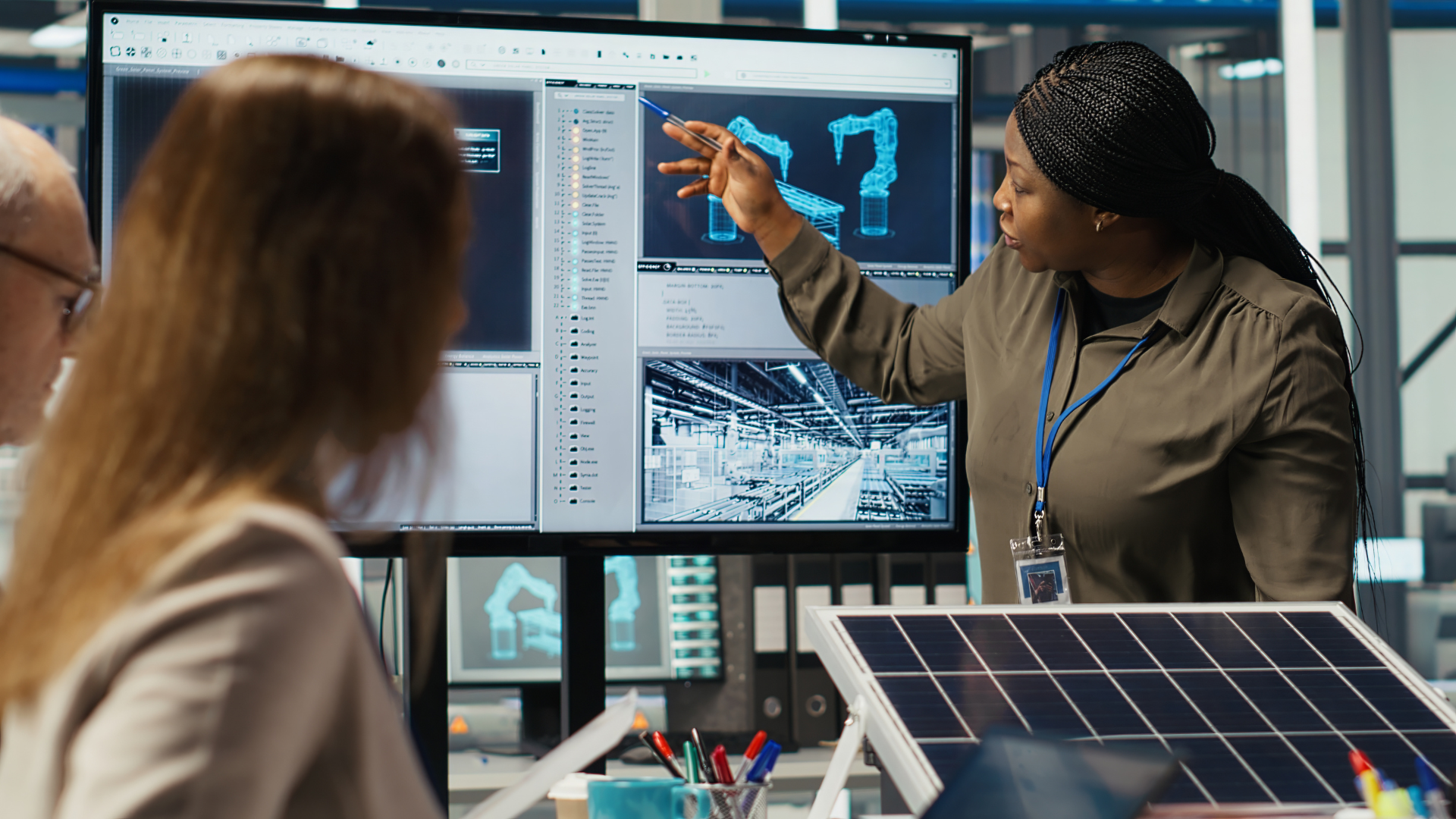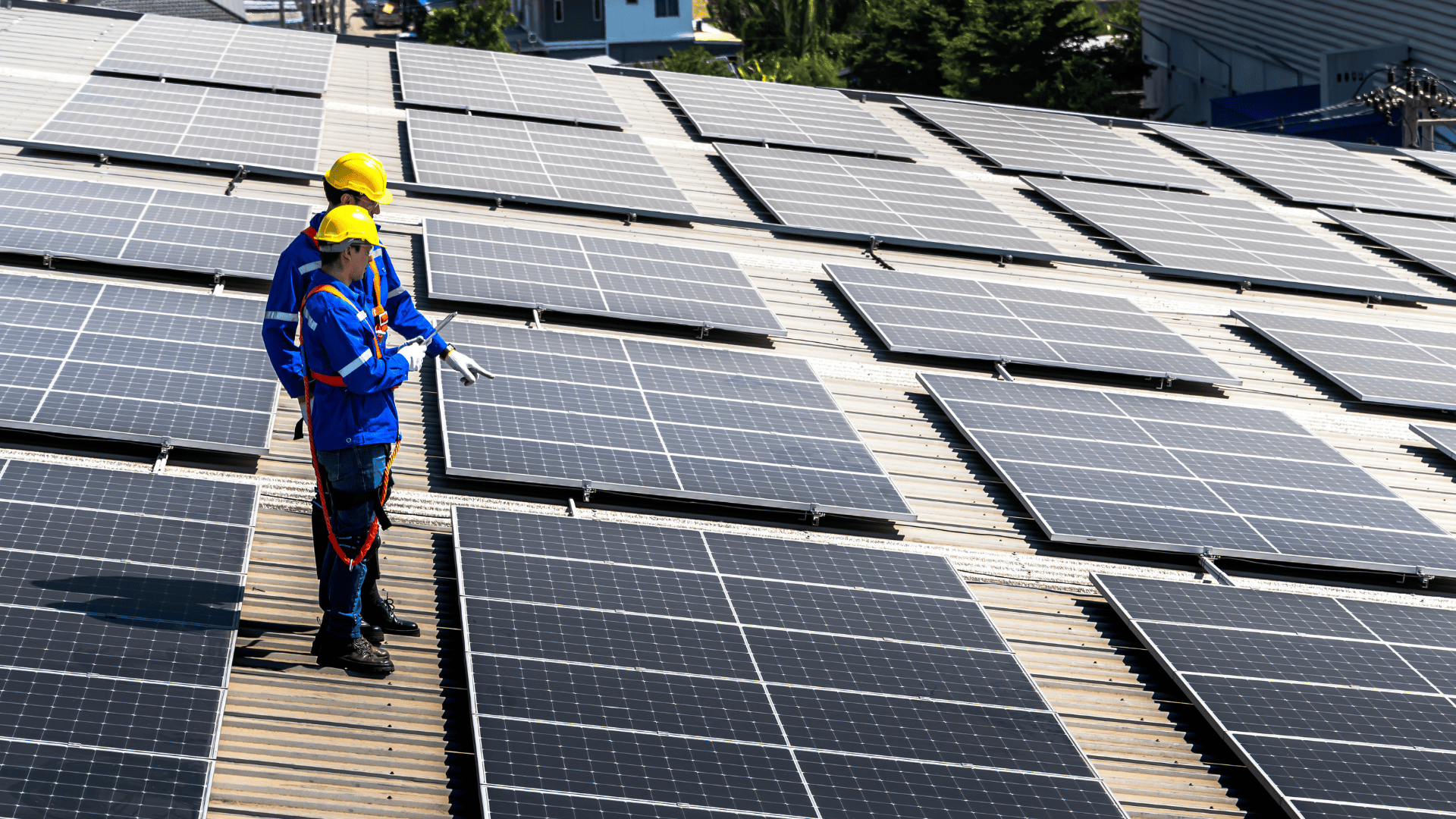May 20, 2024
The solar industry is at the forefront of the transformation of an era defined by technological innovation and sustainability imperatives, and the integration of AI is the driving force behind it. In the face of the imminent need to decarbonize energy generation and combat climate change, AI has become a crucial technology that will change the way we use solar energy.
From the solving of pressing issues to the opening of new opportunities for unprecedented performance, AI's role in the solar sector will bring new perspectives on energy solutions that we have never imagined before. In this article, we are looking at how AI is transforming the solar industry, dealing with the current problems as well as moving the industry to a sustainable and efficient future.
Role of Artificial Intelligence in the Solar Sector
Artificial Intelligence (AI) is not merely a technological buzzword but a transformative force driving innovation and efficiency in the solar sector.
At its core, AI empowers solar technologies with the ability to learn from data, adapt to changing conditions, and make intelligent decisions in real time. This pivotal role of AI unfolds across various facets of the solar industry, reshaping traditional processes and unlocking new possibilities:
Optimized Energy Production
AI algorithms analyze vast amounts of data, including weather patterns, solar irradiance, and historical performance data, to optimize energy production. AI is also used to design, simulate, and test solar energy systems for optimal performance, ensuring that these systems are as efficient as possible.
Enhanced Maintenance Strategies
One of the critical challenges in the solar industry is the maintenance of solar installations. AI-driven predictive maintenance solutions monitor equipment health in real time, detect anomalies, and forecast potential failures before they occur.
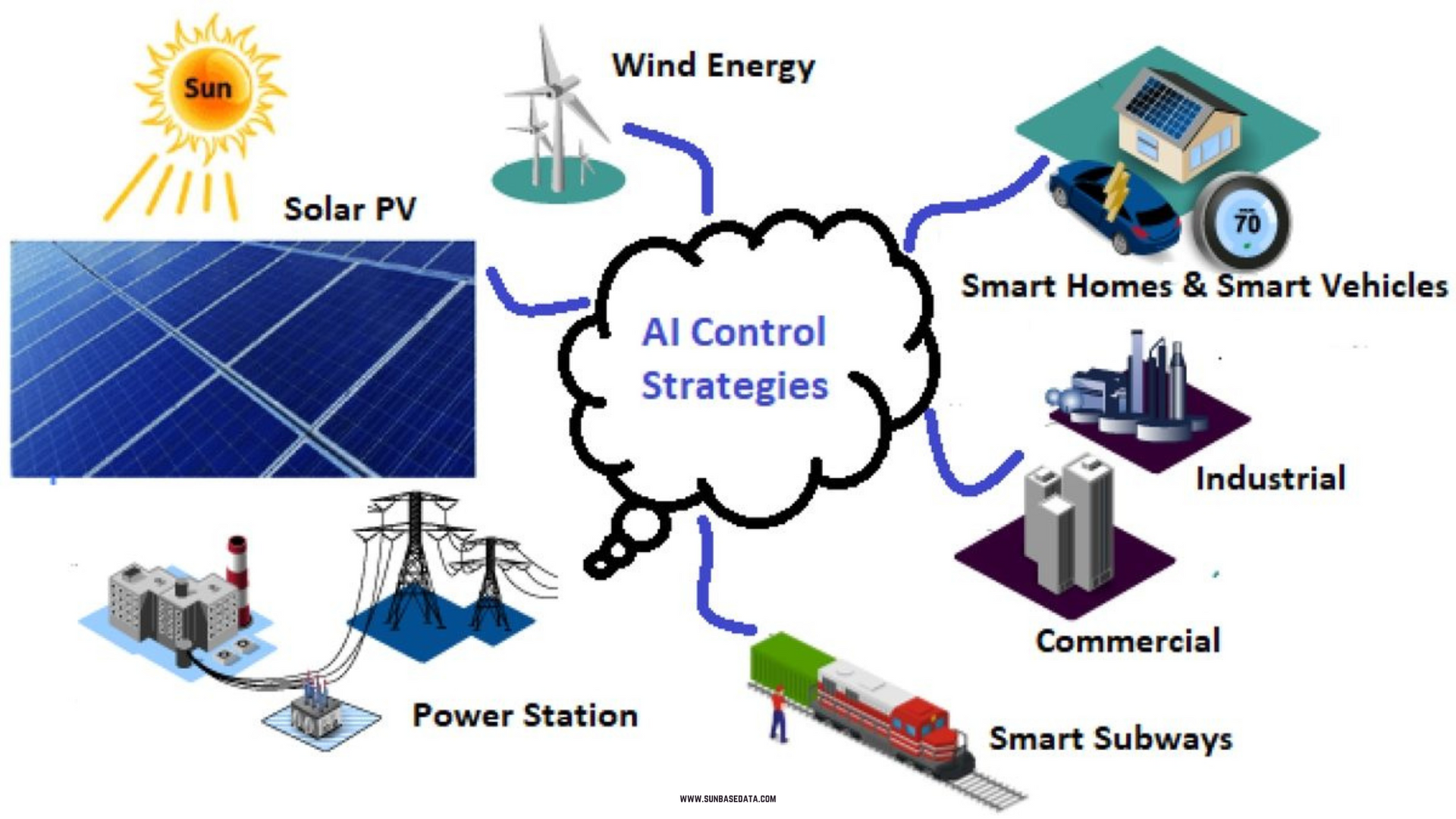
Intelligent Grid Integration
The integration of solar energy into existing power grids poses significant technical challenges, including grid stability and load balancing. AI-powered smart grid solutions dynamically manage energy flow, optimize grid performance, and facilitate seamless integration of renewable energy sources.
Data-Driven Decision-Making
In an increasingly data-driven world, AI empowers solar industry stakeholders with actionable insights and informed decision-making capabilities.
Innovative Research and Development
AI catalyzes innovation in solar technology, driving advancements in materials science, photovoltaic efficiency, and energy storage solutions.
AI aids in the development of solar energy technologies, including solar panels and photovoltaic systems, by enabling the exploration of new materials and improving the efficiency of existing technologies.
Current Challenges in the Solar Industry
The solar industry holds immense promise as a clean and renewable energy source, yet it faces several challenges that hinder its widespread adoption and optimal performance.
Addressing these challenges is crucial for unlocking the full potential of solar energy and accelerating the transition to a sustainable energy future. The key challenges include:
Efficiency
While solar technology has made significant strides in recent years, improving the efficiency of solar panels remains a persistent challenge. Enhancing the conversion efficiency of solar cells and modules is essential for maximizing energy output, utilizing the excess solar energy, and reducing the overall cost per kilowatt-hour (kWh) of solar electricity.
Factors such as material limitations, manufacturing processes, and environmental conditions impact solar panel efficiency and pose ongoing challenges for the industry.
Maintenance
The maintenance of solar installations is another critical challenge facing the industry. Implementing effective maintenance strategies to ensure the longevity and optimal performance of solar systems is essential.
Grid integration
Integrating solar energy into existing power grids presents technical and logistical challenges, particularly concerning grid stability, reliability, and scalability.
Solar power generation is intermittent and dependent on factors like weather conditions and time of day, which can lead to fluctuations in energy supply and grid imbalances.
Ensuring seamless grid integration of solar energy requires sophisticated control systems, grid infrastructure upgrades, and coordinated planning between utilities, regulators, and stakeholders.
Solutions for these challenges- Incorporate AI
Artificial Intelligence (AI) emerges as a transformative tool in overcoming the challenges faced by the solar industry.
Solar companies can revolutionize efficiency, maintenance practices, and grid integration strategies by harnessing AI-driven solutions.
Here’s how AI can be incorporated to tackle these challenges effectively:
Efficiency Enhancement:
Implement AI algorithms to analyze environmental data, such as sunlight intensity, temperature, and shading patterns, to optimize the placement and orientation of solar panels. By maximizing exposure to sunlight, AI can enhance the overall efficiency of solar energy generation.
AI can specifically improve efficiency in community solar projects by optimizing panel placement and predicting energy demand, addressing the unique challenges of expanding community solar installations.
Utilize machine learning algorithms to accelerate the development of advanced materials for solar cells and modules. AI can predict material properties, simulate performance characteristics, and identify novel materials with higher efficiency and durability, driving innovation in solar technology.
Maintenance Optimization:
Integrate AI-powered predictive maintenance systems that continuously monitor the health of solar equipment, detect potential failures in real time, and schedule maintenance activities proactively.
Implement AI-driven remote monitoring platforms equipped with sensors and IoT devices to collect real-time data on residential solar system performance.
AI algorithms analyze this data to identify anomalies, diagnose issues remotely, and provide actionable insights to maintenance teams, facilitating swift and targeted interventions.
Grid Integration Enhancement:
Deploy AI-based smart grid solutions that optimize the integration of solar energy into existing power grids. AI algorithms predict solar generation patterns, forecast energy demand, and dynamically adjust grid operations to maintain stability and reliability.
AI solutions can help manage the integration of utility-scale solar projects into the power grid, addressing fluctuations in energy supply and enhancing the grid's ability to accommodate the unique challenges posed by utility-scale solar installations.
Utilize AI algorithms to optimize the operation of energy storage systems, such as batteries and grid-scale storage facilities, in conjunction with solar generation. AI-driven energy management systems forecast energy production and consumption patterns, optimize charging and discharging cycles, and maximize the utilization of stored energy, thereby enhancing grid flexibility and resilience.
The Rise of AI in Solar Power Generation Technology
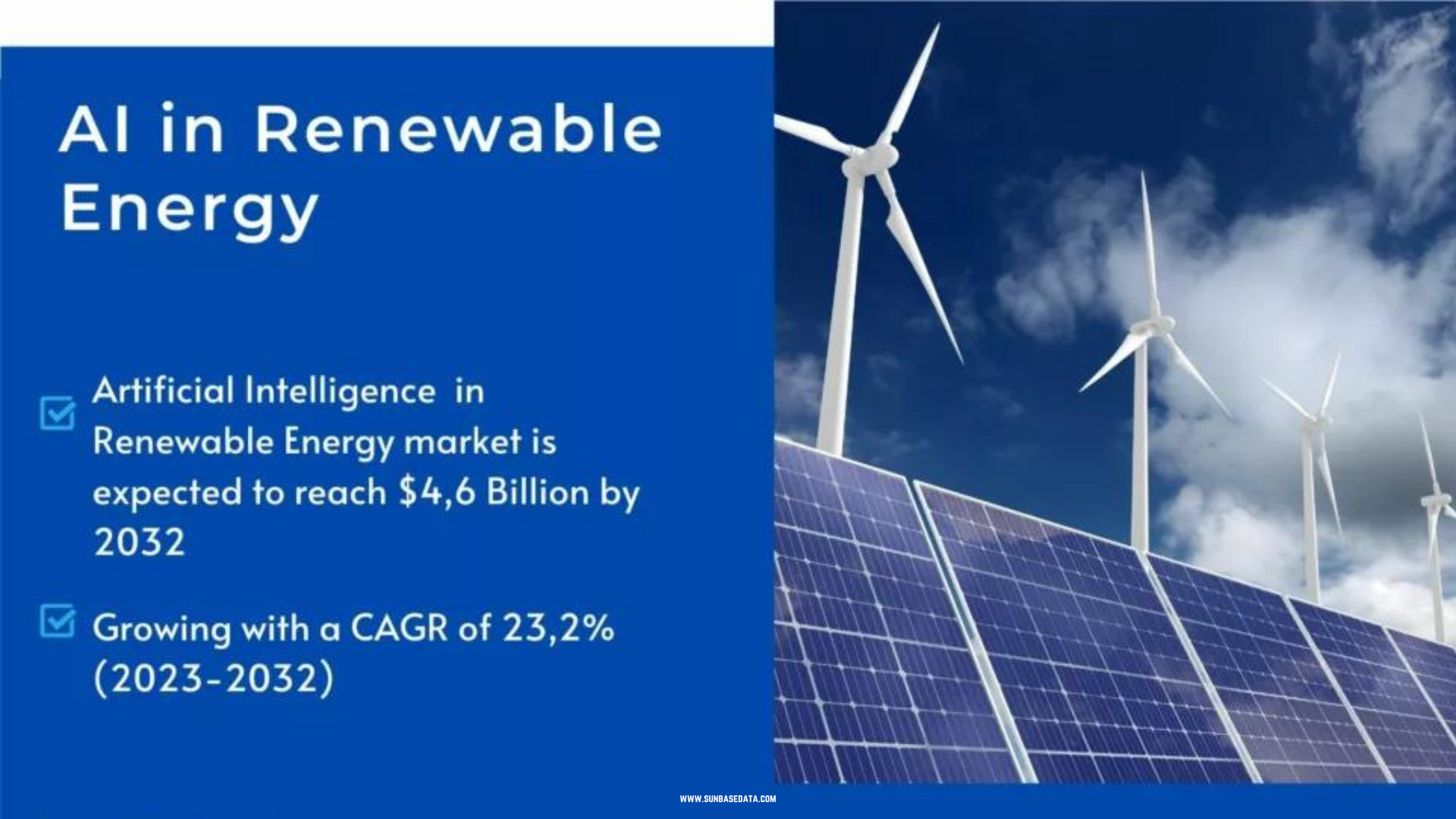
Artificial Intelligence (AI) is reshaping the solar industry, enhancing efficiency, reliability, and sustainability across generation, storage, and distribution. AI is also used to optimize the operation of concentrating solar power (CSP) technologies, such as parabolic troughs and solar power towers, for enhanced energy production.
Generation
- AI optimizes solar panel orientation for maximum energy capture.
- Predictive analytics forecast solar output, aiding grid integration and system planning.
- Remote monitoring detects issues in real-time, minimizing downtime.
Storage
- AI optimizes the charging and discharging of batteries, enhancing grid stability.
- Demand response management balances grid load and maximizes renewable energy utilization.
- Grid integration solutions optimize energy flow, improving reliability and flexibility.
Distribution
- Smart grid management optimizes energy flow in real time, enhancing grid stability.
- Microgrid optimization maximizes energy self-sufficiency and resilience.
- Energy market optimization streamlines energy trading and pricing strategies.
What are some Key AI Trends in the Solar Sector?
Artificial Intelligence (AI) is revolutionizing the solar sector by driving innovation, efficiency, and sustainability. Several key AI trends are shaping the future of solar technology, paving the way for smarter and more resilient energy systems.
AI-driven predictive maintenance, in particular, supports the solar installation sector by ensuring the optimal performance and longevity of installed solar systems, which is crucial as the demand for skilled occupations such as site assessors, electricians, plumbers, and roofers in solar installation and maintenance continues to grow.
Among these trends, these stand out as particularly impactful:
Predictive maintenance
AI-powered predictive maintenance systems continuously monitor the health and performance of solar equipment, such as panels, inverters, and tracking systems, in real-time.
Machine learning algorithms analyze sensor data and historical performance metrics to detect early signs of equipment degradation or failure, such as temperature fluctuations, voltage irregularities, or mechanical wear.
By predicting equipment failures before they occur, AI enables solar operators to schedule maintenance activities proactively, minimize downtime, and extend the lifespan of critical assets, ultimately reducing operational costs and maximizing energy production.
Energy optimization
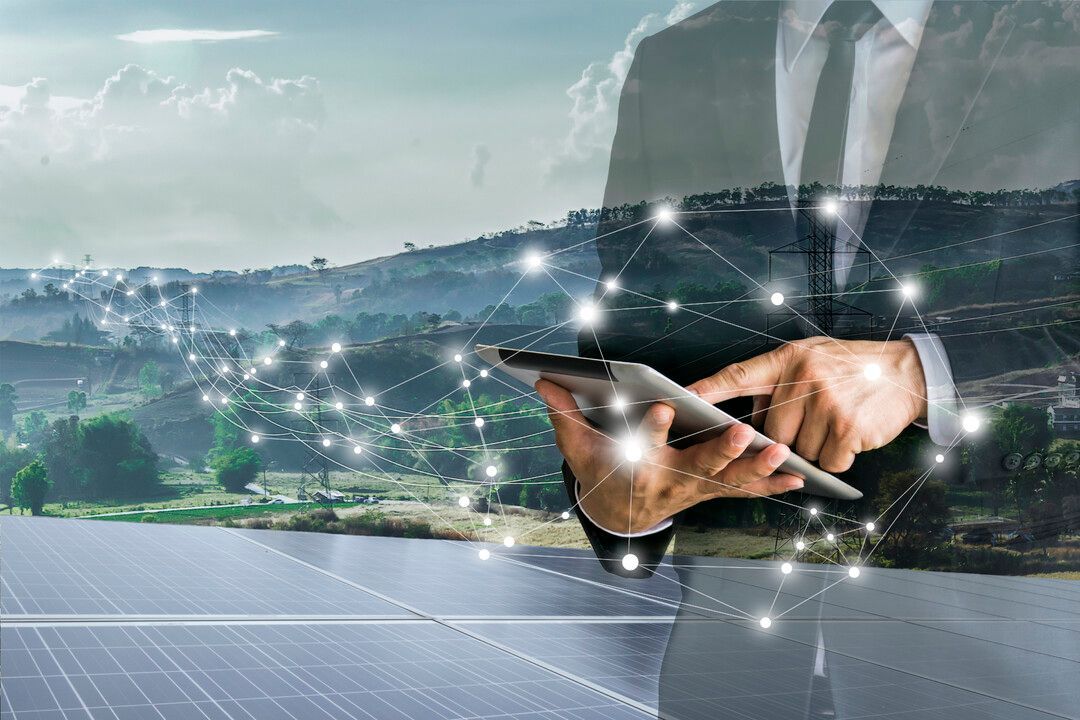
AI algorithms analyze vast amounts of data, including weather forecasts, energy prices, and grid constraints, to optimize energy production, storage, and consumption in real-time.
AI-driven energy optimization systems adjust solar panel tilt angles, battery charging schedules, and energy usage patterns based on current environmental conditions and energy market dynamics.
By maximizing energy efficiency and minimizing waste, AI enables solar operators to optimize energy production and consumption, reduce energy costs, and maximize returns on investment in solar technology.
What are Benefits of Integrating AI in Solar Energy Systems?
Integrating Artificial Intelligence (AI) into solar systems offers a multitude of benefits, revolutionizing the way solar energy is harnessed, managed, and utilized. Here are the key advantages:
Increased efficiency
AI algorithms optimize solar panel placement, orientation, and tracking to maximize sunlight capture, thereby increasing energy generation efficiency.
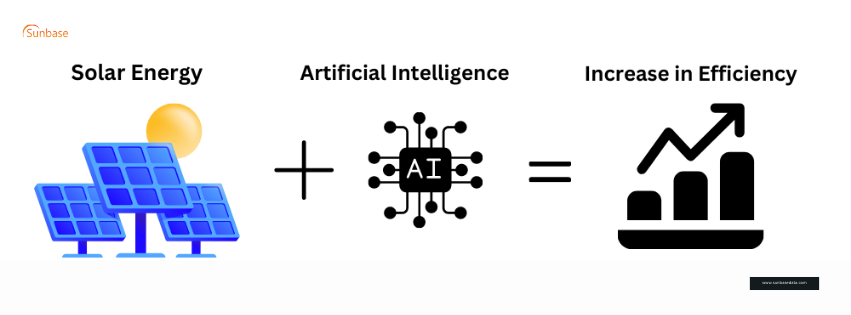
Predictive analytics enable proactive maintenance, minimizing downtime and ensuring optimal performance of solar equipment, further enhancing overall system efficiency.
Cost savings
AI-driven predictive maintenance reduces operational costs by identifying and addressing equipment issues before they lead to costly failures or downtime.
Optimization of energy production and consumption through AI leads to reduced energy waste and lower utility bills, resulting in significant cost savings over time.
Improved reliability
By continuously monitoring system performance and detecting anomalies in real time, AI enhances the reliability of solar installations, ensuring consistent energy output.
Smart grid management powered by AI improves grid stability and resilience, reducing the risk of power outages and disruptions.
Optimize Rooftop Solar Energy Production and Consumption
AI algorithms analyze data on weather conditions, energy demand, and grid constraints to optimize energy production, storage, and distribution, ensuring efficient use of renewable energy resources.
AI-driven energy management systems optimize energy consumption patterns, reducing peak demand and balancing energy supply and demand in real time.
Future Prospects and Innovations
The future of solar energy is intrinsically linked with the advancement of AI technology, offering limitless possibilities for innovation and progress.
A notable mention is a report by the National Renewable Energy Laboratory, a part of the U.S. Department of Energy, which delves into the future of solar energy research, highlighting the potential of Photovoltaic Solar Resources in both the United States and Germany.
Furthermore, the Solar Energy Industries Association plays a crucial role in supporting these innovations, providing valuable insights into future trends in the solar market, and contributing to the growth and workforce development within the solar power industry. Some key prospects and innovations include:
Advancements in predictive analytics
AI-driven predictive analytics will become more sophisticated, enabling more accurate forecasting of solar energy generation and equipment performance.
Advanced predictive models will anticipate changes in energy demand and market dynamics, enabling more efficient energy management and grid optimization.
Autonomous systems
Autonomous solar systems equipped with AI capabilities will self-monitor, self-diagnose, and self-optimize, reducing the need for human intervention and streamlining operations.
AI-powered drones and robots will perform routine maintenance tasks, such as cleaning solar panels and inspecting equipment, improving efficiency and safety.
AI-driven energy management
AI-driven energy management platforms will enable dynamic pricing, demand response, and energy trading, fostering a more decentralized and flexible energy ecosystem.
Blockchain technology combined with AI will enable transparent and secure transactions in peer-to-peer energy markets, empowering consumers to buy, sell, and share solar energy directly.
Wrapping Up
Integrating AI into solar systems unlocks a myriad of benefits, including increased efficiency, cost savings, improved reliability, and optimized energy production and consumption.
As AI technology continues to evolve, the future of solar energy holds immense promise, with possibilities ranging from advancements in predictive analytics to the emergence of autonomous systems and AI-driven energy management solutions.
By embracing these innovations, the solar industry can accelerate the transition to a more sustainable and resilient energy future, benefiting the environment and society.
About Us
Sunbase offers a suite of tools such as Solar CRM, Solar Project Management Software, and Solar Design Software, to empower solar companies and streamline their operations. Contact us to book a demo or appointment!
FAQ
Q1. Can AI help reduce maintenance costs in solar systems?
Yes, AI-driven predictive maintenance minimizes downtime and extends equipment lifespan, resulting in cost savings through reduced maintenance and repair expenses.
Q2. Can AI help in managing energy consumption?
AI-driven demand response management optimizes energy usage patterns, reducing peak demand and minimizing energy waste, leading to cost savings and improved energy efficiency.
I agree to receive marketing messaging from Sunbase at the phone number provided above. I understand data rates will apply, and can reply STOP to OPT OUT.





